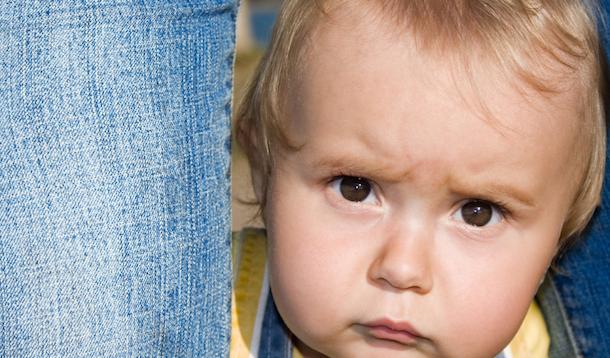
The results of a recent spanking study circulating through the media state that roughly one-third of parents are spanking their babies. As parents are known to under-report spanking, we can assume that the percentage of parents who spank their little ones is actually even higher than this.
What I find most upsetting about this statistic is that a good number of these parents just don’t realize spanking does more harm than good. Even some pediatricians admit not understanding the negative consequences of spanking and can unknowingly recommend this strategy without being aware of its long-term hurtful effects.
Authoritarian parenting (using threats, bribes, yelling, spanking, shaming—belitting and name-calling) was the predominant child-rearing strategy among our parents. As many of us were raised this way, and might feel generally okay about our lives, the negative effects of this parenting style may not have clearly made themselves known.
Although people might say, “I got spanked and I turned out okay,” a person’s baseline for okay might be lower than what most would consider for living a happy life. People with drinking problems, relationship trouble and debt issues have told me they were spanked and are okay. True, maybe a person feels reasonably good, but we need to acknowledge the sneaky, negative effects that spanking can leave on a person.
Spanking grows a set of negative unconscious beliefs in people. These thoughts (called core beliefs), plant seeds for negative self-talk that can sabotage our success, tell us to do mean things, or weaken our confidence.
For example, if a baby who reaches for an interesting planter gets smacked on the hand, that baby will not have the brainpower to connect the two actions.
The smacking of his hand will not teach the baby that the planter shouldn’t be touched. Rather, he will likely be scared that he was hurt by his caregiver while he just was playing or exploring as his natural instinct is telling him. For babies, it’s easier and less stressful to simply move objects that can’t be touched. When the child is old enough to understand cause-and-effect, those items can be put back, and a plan put in place to teach the young child how to care for fragile things.
After a child experiences a spank/shout/threat, that child does not have the ability to discern, Oh, my parents are sleep-deprived and just made some bad parenting choices. Since little ones can’t be aware of other’s mistakes, they tend to develop that sneaky negative belief of “IT’S ALL MY FAULT."
How a child is treated will affect how that child sees himself, the person doing the spanking, and the world itself. So rather than feeling his parents have moments where they aren’t calm and rational, he might start to believe that his parents are scary.
When a child receives both nurturing, thoughtful care from a parent AND scary, painful hits, the conflicting parenting behaviour can create confusion. This confusion can cause a child to unconsciously believe, “My parents are unpredictable. This means I can’t trust them.” If this belief goes unchecked, it continues to drive how a person behaves and feels. How do you think a person might feel who believes that his parents are unpredictable? The clients I hear from with this experience generally say it's anger and lack of trust—not feeling they can be open with their parents for fear of what they might do.
Any harsh punishment, including yelling and shaming, UNDOES the good secure “attachment” a parent may have worked hard to establish.
The bottom line is that spanking might temporarily work because it surprises little ones into obeying, BUT that temporary compliance can cause a child to grow harmful beliefs and angry feelings toward the person doing the spanking. There is never a good time to spank a child.
The urge to follow orders that develop from a fear-based tactic, such as spanking, comes from the part of our brain that controls our self-protection. This is referred to as the “reptilian brain,” which governs our physical and emotional protection. When one is spanked, this area of the brain is kicked into action, and triggers various defensive mechanisms. I explain more about this process and how it can affect a person’s thoughts, behaviours and feelings in this article called, “The Cost Of Spanking Our Children.” Alternatively, when clever words are used to inspire cooperation, the “rational” part of the mind (the cerebral cortex) grows.
Spanking grows a child’s defensiveness and anger, whereas calm, rational words grow a child’s cooperation and problem-solving skills.
Please pass this along to any person you know who still spanks his or her child. It’s time for a massive campaign to change the way parents view spanking—to educate everyone of what is mentioned above. If your partner or any other of your child’s caregivers thinks spanking is okay, but you do not, it is SO important to have the hard discussions and get all caregivers on the same page.
What can you do instead of spanking? Each day I post free parenting resources and book reviews on my Facebook page to learn about all the things you can do instead of spanking to raise happy, cooperative kids. I invite you to join this supportive parenting community to share your story, ask your questions, and learn.